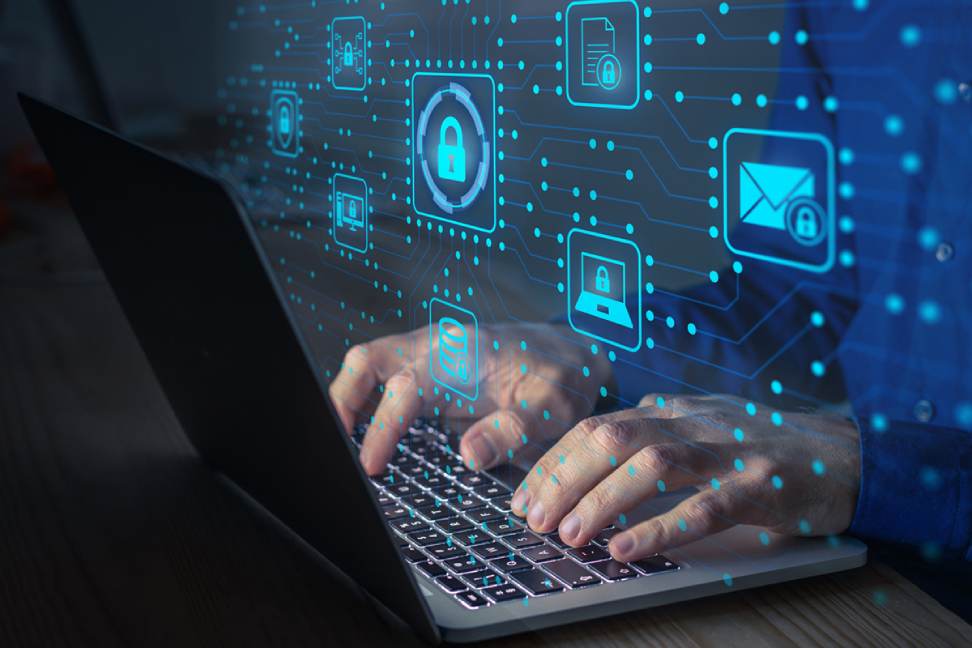In the continuously evolving reality of 2024, remote work is now an essential feature of our working world. However, remote work security has become an important issue because of flexible and peculiar work environment. With the advent of the new normal, the companies will require decisive information security systems to safeguard against the cyber threats that have become a norm. Today, we will enlist five imperative cybersecurity steps suited for secure remote jobs in the coming years.
Virtual Private Network (VPN): Securing Remote Connections
Considering that remote workers actually join the corporate network from different places, the application of the VPN becomes a must. VPNs use encryption methods to encrypt the internet traffic such that a secure tunnel is created between the user’s device and the company’s servers. This encryption is making sure that the confidential and protection of transmitted data remain secure from the networks that are public and the illegitimate actors. When working remotely, avoid using free website hosting services or public Wi-Fi networks without a Virtual Private Network (VPN), as these unsecured connections could expose your data to malicious actors attempting to intercept your online activities. Moreover, VPNs become the extension which masks the user’s IP address taking the anonymity to the next level and countering the cyber menaces.
Multi-Factor Authentication (MFA): Strengthening Access Controls
In times when passwords alone cannot protect the accounts from remote cyberthreat, Multi-Factor Authentication (MFA) becomes a principal pillar of remote security. MFA supplements more security through providing users with several form of authentication making it possible to ascertain access. It can be something they know (for example, the password), something they have (smartphone or a token), or something they are (e.g. a fingerprint or a facial recognition data). Organizations can, within the implementation of a multi-factor authentication, significantly diminish the chance of unauthorized access, even in instances of compromised credentials.
Endpoint Security: Safeguarding Devices from Threats
When working remotely people may use a number of devices such as phones, notebooks or tablets. Each and every consequence of the critical infrastructure can be made victims of cyber attackers who attempt to attack via many ways. Additionally, a secure network is the basis of secure organization and includes the endpoint security solutions like antivirus software, firewalls, and EDR systems. By implementing a complete range of endpoint security tools, organizations can be absolutely breather of the fact that only those devices that complied with rigorous security providences will get permission to connect to the network, thus reducing the chance of data loss.
Secure Collaboration Tools: Ensuring Confidential Communication
Collaboration tools have turned into an essential part of the tools for remote teams, to make work smoothly and correspond effectively. Nonetheless, any methods known for unauthorized or security-breaching purposes are the way for hackers to have access to personal data. While web hosting affiliate program may offer free or discounted collaboration tools, it’s crucial to thoroughly evaluate the security features and encryption protocols implemented by these platforms to prevent unauthorized access or data breaches when sharing sensitive information remotely. Secure collaboration platforms, provided with end-to-end encryption and robust access controls, provide an environment where sending files, organizing meetings, and engaging in projects can securely be conducted.
Employee Training and Awareness: Building a Cyber-Aware Culture
The investment in robust and complete cybersecurity sessions for training and awareness classes gives remote employees a general knowledge of various cybersecurity threats and how to respond to them. Workshops on things like phishing awareness and password management as well as the browsing security awareness techniques empower the people with the knowledge and practical skills to do Internet surfing safely. In addition to this, cultivating a culture which brings the cybersecurity awareness enhances accountability and fosters individuals to incorporate proactive solutions thus strengthening security to the organization against cyber threats.
In conclusion, as remote work continues to redefine the modern workplace, prioritizing cybersecurity measures is imperative to mitigate risks and safeguard sensitive data. Organizations achieving digital maturity would therefore guard against adverse scenarios resulting from cyber threats by applying the recommendations mentioned above and providing safe cyberspace where personnel would continue to conduct their professional activities in 2024 and further on.
Have a Look :-

